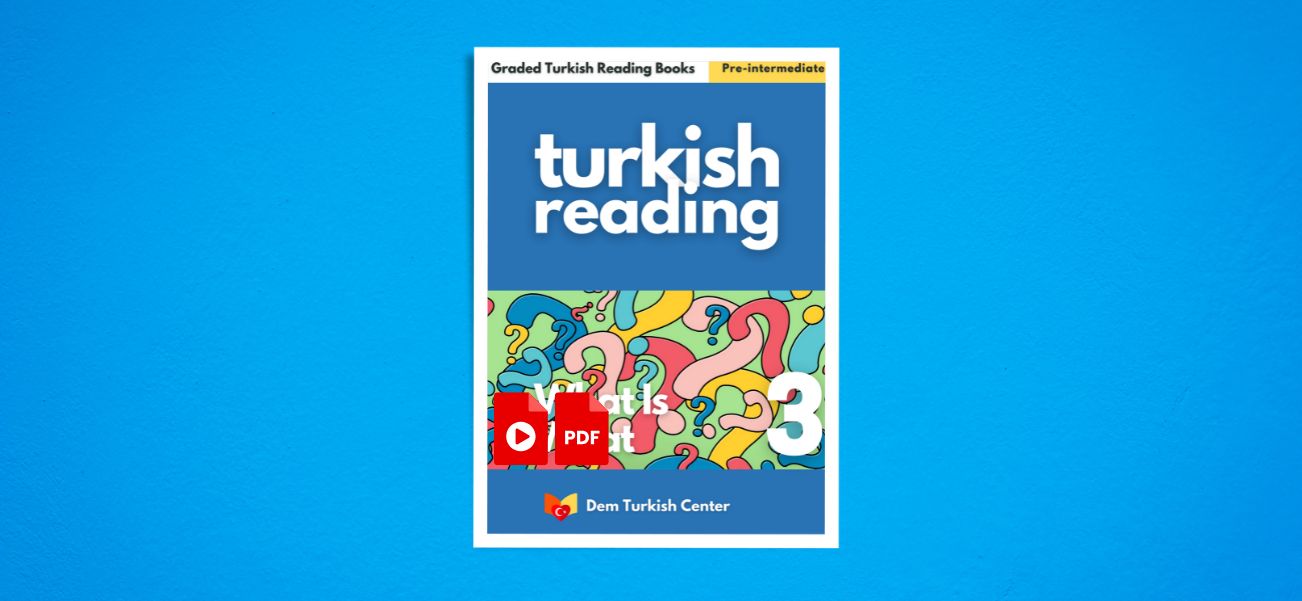
How to Learn Turkish Fast: The Best Techniques
Mastering Turkish in a short time may appear challenging, but with effective strategies, commitment, and the right mindset, you can attain fluency quicker than expected.
As a beautiful and systematic language with a rich cultural and historical background, Turkish offers an engaging learning journey. Whether your goal is to learn it for travel, career, or personal relationships, the experience can be both enjoyable and productive.
HOW TO LEARN TURKISH FAST: BEST TECHNIQUES
Below is a detailed guide to help you efficiently and quickly learn Turkish using proven techniques.
1. Start with the Basics of the Turkish language
Before tackling advanced grammar or vocabulary, start by mastering the fundamentals.
Get acquainted with the Turkish alphabet, which includes 29 letters, some unique to the language, such as ç, ğ, and ş. Since Turkish is a phonetic language, learning the pronunciation of each letter will significantly simplify both reading and speaking.
Begin with essential phrases that are used in daily conversations, such as:
- Merhaba Hello
- Teşekkür ederim Thank you
- Evet Yes
- Hayır No
- Nasılsınız? How are you?
Learning these foundational elements will build your confidence and allow you to start speaking from day one.
Start learning Turkish yourself with Turkish Starter Course FREE!
2. Immerse Yourself in Turkish
Immersion is among the most effective methods for quickly learning any language.
Even if traveling to Turkey isn’t an option, you can still create an immersive environment right where you are:
Watch Turkish TV shows and movies
Platforms like Netflix offer a wide selection of Turkish dramas and comedies. Turn on Turkish subtitles to follow along and pick up vocabulary in context.
15 Best Turkish TV Shows on Netflix
Listen to Turkish music and podcasts
Turkish pop and folk music are great for learning rhythm and pronunciation. Podcasts like "Turkish Tea Time" or "Learn Turkish with LinguaBoost" provide structured lessons for learners.
Follow Turkish social media accounts
Engaging with Turkish influencers and creators exposes you to colloquial expressions and everyday vocabulary.
Immersion helps you think in Turkish, speeding up your learning process.
3. Focus on High-Frequency Turkish Words and Phrases
To accelerate your Turkish learning, focus on the most frequently used words and phrases.
Research indicates that mastering just 1,000 high-frequency words can help you understand up to 80% of daily conversations.
Start with categories such as:
- Basic verbs gitmek (to go), gelmek (to come), yapmak (to do)
- Common nouns ev (house), yemek (food), şearkı (song)
- Useful adjectives büyük (big), küçük (small), güzel (beautiful)
Check out DTC Blog for the lists of Turkish words and phrases!
Flashcard apps like Anki or Quizlet can help you memorize these words efficiently. Pair them with images or example sentences for better retention.
Download Turkish flashcards and learn basic Turkish words and phrases!
4. Practice Turkish Speaking from Day One
Many language learners hold off on speaking until they feel more confident, but this hesitation can slow down your progress.
Start practicing Turkish from the very beginning, even if you only know a handful of words. Here’s how:
- Find a Turkish language partner Apps like Tandem and HelloTalk connect you with native Turkish speakers for language exchange.
- Talk to yourself Narrate your daily activities in Turkish. For example, "Ben su içiyorum" (I am drinking water).
- Join language meetups or online group Engaging with other learners and native speakers builds your conversational skills and confidence.
The more you practice speaking, the faster your brain adapts to thinking in Turkish.
5. Leverage Turkish Grammar Wisely
Turkish grammar is logical and consistent, but it can seem intimidating at first.
Focus on understanding the basics before diving into complex structures:
- Sentence structure in Turkish Turkish follows a subject-object-verb (SOV) order. For example, "Ben kitabı okuyorum" (I am reading the book).
- Turkish Suffixes Turkish is an agglutinative language, meaning suffixes are added to words to indicate tense, possession, and more. For instance, "evim" means "my house" ("ev" = house, "-im" = my).
- Vowel harmony in Turkish This rule ensures suffix vowels match the root word’s vowels. It’s a unique aspect of Turkish grammar that becomes intuitive with practice.
Instead of memorizing rules in isolation, apply them in context by forming sentences and asking native speakers for feedback.
6. Use Language Learning Apps
Apps can supplement your learning and keep you motivated. Popular options include:
- Duolingo Offers gamified lessons with a focus on vocabulary and basic grammar.
- Busuu Provides structured lessons and feedback from native speakers.
- Memrise Features real-life video examples and pronunciation guides.
These tools are excellent for practicing on the go and reinforcing what you’ve learned.
7. Set SMART Goals
Set Specific, Measurable, Achievable, Relevant, and Time-bound (SMART) goals to stay on track. Examples include:
- Learn 20 new words per week.
- Have a 5-minute conversation in Turkish by the end of the month.
- Watch one Turkish movie without subtitles in three months.
Break larger goals into smaller tasks and track your progress regularly.
8. Embrace Mistakes and Stay Consistent
Mistakes are an inevitable part of learning a new language, so don’t shy away from them—they offer valuable lessons.
Consistency is equally important. Commit at least 20-30 minutes each day to studying Turkish, whether it’s focusing on vocabulary, speaking, or listening practice.
Learning Turkish: 10 Mistakes To Avoid
9. Dive into Turkish Culture
Understanding Turkish culture enhances your language skills and deepens your connection to the language. Explore:
Turkish Cuisine
Learn names of dishes like "lahmacun" and "baklava," and practice ordering food in Turkish.
Turkish Cuisine: Turkey's Culinary Mosaic
100 Iconic Turkish Dishes in Turkey
Turkish Customs
Familiarize yourself with Turkish etiquette, such as greeting elders with "Hoş geldiniz" (Welcome).
Discover the top 50 traditions in Turkey!
History and Traditions
Reading about Turkey’s rich history provides context for many expressions and idioms.
10 Historical Facts To Help You Understand Turkish Culture
10. Regularly Test Yourself
Assessing your progress helps identify strengths and areas for improvement. Test yourself by:
- Writing short essays or journal entries in Turkish.
- Taking online quizzes or practice tests.
- Recording yourself speaking and comparing it to native speakers.
Self-assessment keeps you motivated and ensures continuous improvement.
Learning Turkish fast requires focus, dedication, and a strategic approach. By immersing yourself in the language, prioritizing high-frequency vocabulary, practicing speaking daily, and embracing Turkish culture, you can accelerate your progress and achieve fluency.
Remember, consistency is the key to success—and as the Turkish proverb says, "Damlaya damlaya göl olur" (Drop by drop, a lake is formed). Start today, and soon you’ll find yourself speaking Turkish with ease and confidence.














